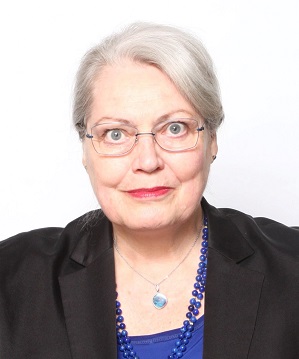IEEE SusTech Talk: Basic Sustainability Assessment Tool (BSAT)
SusTech is hosting talks on Sustainability topics leading up to the 2024 conference in April.
“Basic Sustainability Assessment Tool (BSAT)”
with Maike Luiken, Chair IEEE Planet Positive 2030 and IEEE P7800 Standards Working Group
Date: Thursday 14-December-23
Time: 06:00 PM to 07:00 PM (PDT) (online)
Date and Time
Location
Hosts
Registration
-
 Add Event to Calendar
Add Event to Calendar
Loading virtual attendance info...
- Contact Event Hosts
- Co-sponsored by IEEE SA
Speakers
 Maike Luiken of IEEE Planet Positive 2030
Maike Luiken of IEEE Planet Positive 2030
Basic Sustainability Assessment Tool (BSAT)
As part of the Planet Positive 2030 initiative of the IEEE Standards Association, impact accountability and assessment frameworks for sustainability are being evaluated. Dr. Maike Luiken, Chair of IEEE Planet Positive discusses the Basic Sustainability Assessment Tool (BSAT) and its role in helping SME (small and medium sized enterprises) identify themselves as sustainable procurement options and have a positive impact on sustainability.
Sustainability reporting is widely used by bankers/lenders and impact investors. Buyers obtain the best value for money when purchasing the most sustainable goods and services from the most sustainable suppliers, in support of the buyer’s organizational purpose and strategic goals.
Over the past few years, focus in supply procurement has shifted from a primary focus on reduced cost to greater emphasis on reducing risk and achieving an organization’s overall sustainability goals.
SMEs (organizations with fewer than 500 employees) are major components of business activity globally. The Basic Sustainability Assessment Tool has been designed to allow them to prepare an accurate sustainability report without onerous overhead.
An organization’s sustainability report describes its impacts on the environment, its employees, and communities/society, under the governance/oversight that ensures that it is fulfilling its purpose. Core topics/issues include governance, environment, materials, energy, water, GHG emissions, waste, employee issues, community impacts and business ethics. A sustainable business not only causes no harmful impacts, directly or indirectly, it also can have positive impacts.
BSAT scoring in these areas is explained, as well as how the tool includes bonuses for positive and restorative impacts. The use of such a tool can have a globally positive effect, both environmental and social.
Biography:
Maike Luiken, PhD, SMIEEE, IEEE-HKN, FIEC, is a longtime advocate for sustainable development, driven to leverage technology to achieve a more sustainable planet. She is managing director, R&D, at a start-up company, Carbovate Development, and Adjunct Research Professor, Western University, Canada.
Maike’s career spans academia and industry in Canada, USA and Germany. She obtained degrees from the Technical University of Braunschweig, Germany, (Staatsexamen HL, Mathematics and Physics) and the University of Waterloo, Canada (PhD, Physics). In Sarnia, Ontario, she lead the Bluewater Sustainability Initiative, 2006-2013, and served eight years as Dean at Lambton College, School of Technology, Sustainable Development, and Applied Research. Her strategic leadership and vision led to Lambton College becoming one of the top Research Colleges in Canada.
Her areas of interest and expertise span diverse technical areas from ICT, energy, and water to advanced manufacturing. She has particular interest in how progress and deployment of various technologies contributes – or not – to achieving sustainable development. She currently chairs IEEE Planet Positive 2030 – an initiative of the IEEE Standards Association – and the P7800 Standards Working Group: Recommended Practice for Addressing Sustainability, Environmental Stewardship and Climate Change Challenges in Professional Practice. She co-chairs the IEEE Future Directions SusTech Initiative.
Maike has served as the IEEE VP MGA, 2021, as President, IEEE Canada, 2018-19, and as Chair, Policy Track, IEEE Internet Initiative, 2017-18. An IEEE SA Managing Director’s Special Recognition has been awarded to her this year in appreciation for her leadership of Planet Positive 2030 and other sustainability initiatives inspiring all of IEEE.
Email:
Address:Canada
Agenda
1800 Begin
1900 End

